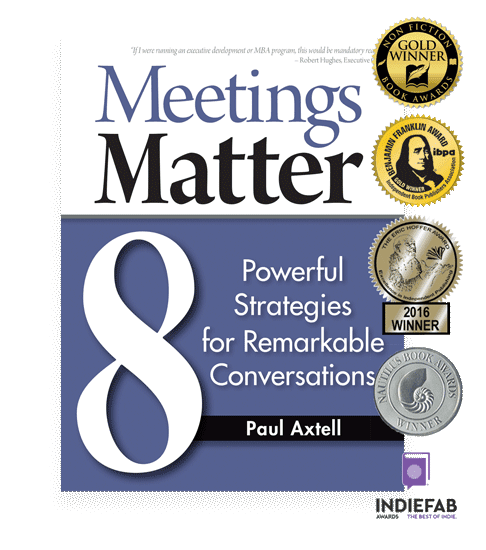Listening is a critical skill—Take this audit to see how you’re doing
Cindy and I have been traveling this year, and after every trip, we remark to ourselves about how seldom people ask us a question and then really listen. So I thought I’d take a few minutes of your day and remind you about the impact of your listening on others.
“We inhabit a culture that knows how to speak but not how to listen: so we mistake warring monologues for genuine dialogue.” —Manfred Riedel, Between Tradition and Revolution
Why work on listening?
There are some people who are just wonderful to be around. You feel good when you are with them. If you step back and observe these people, you will begin to admire the way in which they listen.
Listening might be the most important interpersonal skill. When you give your full attention to someone, special things happen. Upsets disappear. Ideas come out. New thinking occurs. People open up. Self-esteem soars.
Yet we don’t listen very often, at least in a way that is magical. We listen mostly just enough to follow what is being said. We listen for what’s important to us. We interrupt. We finish other people’s sentences. We pretend to listen. Sometimes we don’t even pretend—instead we check our smart phones or we multitask. Certainly, we don’t often intend to make a difference with someone by how we listen to them.
“Nothing hurts more than the sense that people close to us aren’t really listening to what we have to say. We never outgrow the need to communicate what it feels like to live in our separate, private worlds of experience. An attentive ear is such a powerful force in human relationships. That is why the failure to be heard is so painful.” —Michael Nichols The Lost Art of Listening
We all have a natural ability to listen
With a little attention and practice, you can discover how to make a difference with how you listen. It’s pretty simple. Slow down and pay complete attention to each person who speaks to you. Your attention indicates that you are interested and that you care. When you devote yourself to someone else when they speak, you make a difference to both the person and the conversation.
Awareness and practice will have an impact on your listening
Awareness is the key to making any change or progress. By noticing your behavior, and especially noticing what does not work for you, you begin on the path toward improvement. A practice is a deliberate, ongoing action that you add to your routine or way of working and living. Over time, a practice becomes a habit.
The following set of practices impact other people’s experience of being in a conversation with you. They are presented here as an audit you can use to assess yourself or you can ask a few colleagues to give you a candid assessment of what they experience when speaking with you.
Critical Listening Skills Audit
To what extent do I: (1—not at all, 5—all the time; higher scores are desirable.)
Show interest in other people and what they want to discuss?
Put my full attention into a conversation?
Treat each conversation and each person as though they matter?
Respect the other person’s speaking and their right to say it?
Allow others time to complete their comments without interrupting?
Avoid automatic reactions; pause and respond in a way that works?
Keep confidences; ask for permission to share something from the conversation?
Ask questions for clarity when needed?
Maintain appropriate eye contact when speaking or listening to someone?
Place myself in the other person’s position; seek to understand their reality?
Invite others into the conversation; encourage others to express their views?
Exhibit patience during conversations and meetings?
Practice supportive nonverbal behavior: eye contact, posture, nodding, facial expression?
Take a minute to think about what has been said before responding?
Listen with sincerity and full attention, not with a pretense of interest?
Take notes when appropriate?
Keep outside distractions to a minimum including technology?
Check to see if a conversation is finished before bringing up something new?
0–36: It’s time to focus on personal development—especially conversational skills. (See Tell Me More by Brenda Ueland and Learning to Listen)
37–54: Your conversational style is probably costing you influence. (See Regarding Influence and Influence Practices)
55–72: Your conversational style is strong, leading to trust and respect. (See Trust and Respect Assessment)
73–90: You are remarkable and great to be around.
“There can only be true listening if there is complete attention, and there can only be complete attention if there are no expectations whatsoever in the mind. And that is by no means a simple matter: As a matter of fact, it is about the hardest thing to do.” —Toni Packer, The Silent Question: Meditating in the Stillness of Not-Knowing
Summer events will give you many opportunities to invite people into a conversation and then give them a really good listening to!
Take care,
Paul




















































